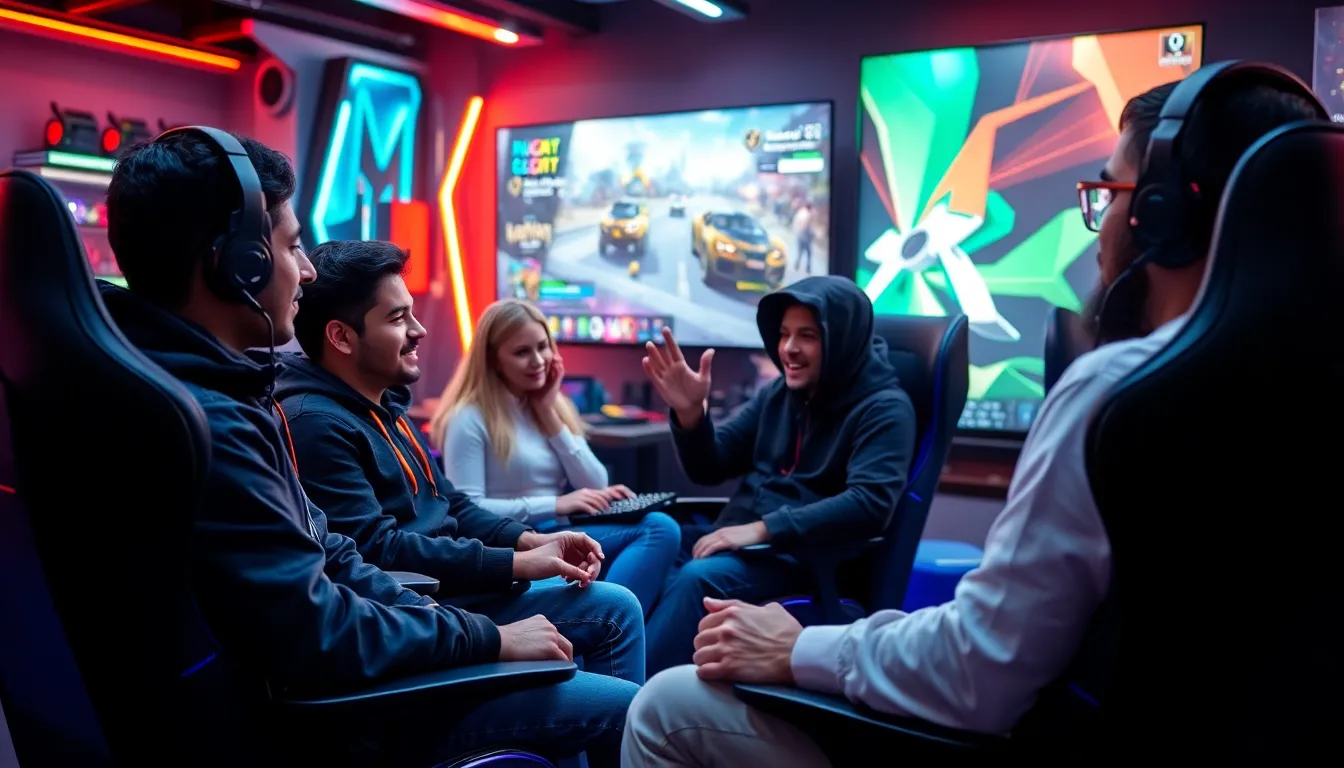Gaming slang is the vibrant language of the gaming world, akin to a rich tapestry woven with laughter, strategy, and a sprinkle of chaos. Want to decode your friend’s enthusiastic “GG” after a match? Or perhaps you’re confused by the constant references to “noobs”? Fear not. This guide will not only clarify the meanings behind the quirky terms but also explore how this slang has evolved, creating an exhilarating blend of connection and culture within the gaming community.
Table of Contents
ToggleWhat Is Gaming Slang?

Gaming slang refers to the unique language or jargon used by gamers, encompassing terms, acronyms, and phrases that are often obscure to outsiders. It serves as a means of communication that enhances gameplay, builds camaraderie, and fosters a sense of belonging among players. Think of it as a secret club language: understanding it can instantly elevate a player’s status among peers.
In a world where speed and efficiency are crucial, gamers use slang to convey complex ideas in mere seconds. Instead of saying “good game,” they simply say “GG.” It’s quick, catchy, and delivers a friendly nod of acknowledgment. Similarly, terms like “camping” or “lag” have specific implications in the gaming realm that non-gamers might not grasp immediately. Slang evolves, reflecting the social dynamics and shared experiences of the gaming community.
The Evolution of Gaming Language
The evolution of gaming slang mirrors the growth of the gaming industry itself. Initially rooted in early text-based games and online forums, slang has transitioned alongside the medium from simple pixel games to complex, immersive worlds. Back in the day, terms like “killed in action” (KIA) could be found in basic role-playing games. As technology advanced, so did the lexicon.
With the dawn of massively multiplayer online role-playing games (MMORPGs), a plethora of expressions emerged. This era marked the birth of terms like “lewt” referring to loot, and “grinding,” where players repetitively seek experience points. New genres brought new phrases, and gaming communities flourished within platforms like Discord and Twitch, which played pivotal roles in nurturing new slang.
The establishment of esports further accelerated this language evolution. With professional gamers racing to the top, terms that once lingered in casual games found their way into competitions, creating a blend of technical jargon and informal lingo.
Common Gaming Slang Terms and Their Meanings
Understanding gaming slang enriches the gaming experience and can prevent potential confusion. Here are some common terms:
- Noob: Refers to a beginner or inexperienced player.
- LFG: Short for “Looking for Group,” used when a player seeks others to join them in-game.
- Pwned: A term meaning to dominate or defeat someone thoroughly, often a playful twist on the word ‘owned.’
- Meta: Refers to the most effective tactics available, outlining the best strategies in a game at a given time.
- Spawn: The process of players or items appearing in the game world after being created or re-entering the game.
- AFK: Stands for “Away From Keyboard,” notifying others that a player is temporarily offline.
These terms are essential in both casual conversations and serious discussions among gamers, fostering a sense of unity and understanding through shared language.
The Role of Slang in Online Gaming Communities
Slang plays a significant role in building and maintaining online gaming communities. It acts as a social glue, binding players together with shared references and humor. When players use slang, they’re not just communicating: they’re also signaling their membership in a specific community. This shared language fosters connections, helping players feel more invested in their gaming experiences.
Also, slang can serve multiple purposes: it promotes inclusivity for those who understand, while simultaneously creating barriers for outsiders. This duality is what makes gaming slang fascinating. Online forums, Twitch streams, and YouTube videos often showcase slang and its evolution, reinforcing community bonds as players learn to navigate the language of gaming. Eventually, this unique vernacular elevates the overall experience, enriching friendships forged through gameplay.
Regional Variations in Gaming Slang
Just as different regions of the world have unique dialects, gaming slang also exhibits regional variations. What’s common in North American gaming communities might not be as familiar in European or Asian counterparts. For instance, while Americans might refer to a challenging match as “sweaty,” British gamers may lean towards terms like “queuing” as they wait to join games.
Besides, cultural influences shape these differences. In Japan, for instance, terms like “kawaii” (cute) may reflect the aesthetics of a game’s design or characters, blending the gaming experience with cultural values. Understanding these regional differences adds depth to the gaming dialogue and highlights the diverse nature of global gaming communities.
Impact of Gaming Slang on Mainstream Culture
Gaming slang has seeped beyond its virtual origins, influencing mainstream culture significantly. Terms like “level up” have crossed over into everyday conversations, symbolizing personal growth and achievement. Similarly, phrases such as “GG” have become universal expressions of goodwill, showing the profound influence gaming culture has on social interactions.
The emergence of esports has only intensified this impact, with professional players becoming celebrities and their language entering popular discourse. Games like Fortnite and League of Legends have popularized phrases that resonate with everyday life, transforming jargon into catchphrases. This shift signals the importance of gaming in shaping communication styles, reinforcing the idea that gaming slang is not just niche but a vital component of contemporary dialogue.


